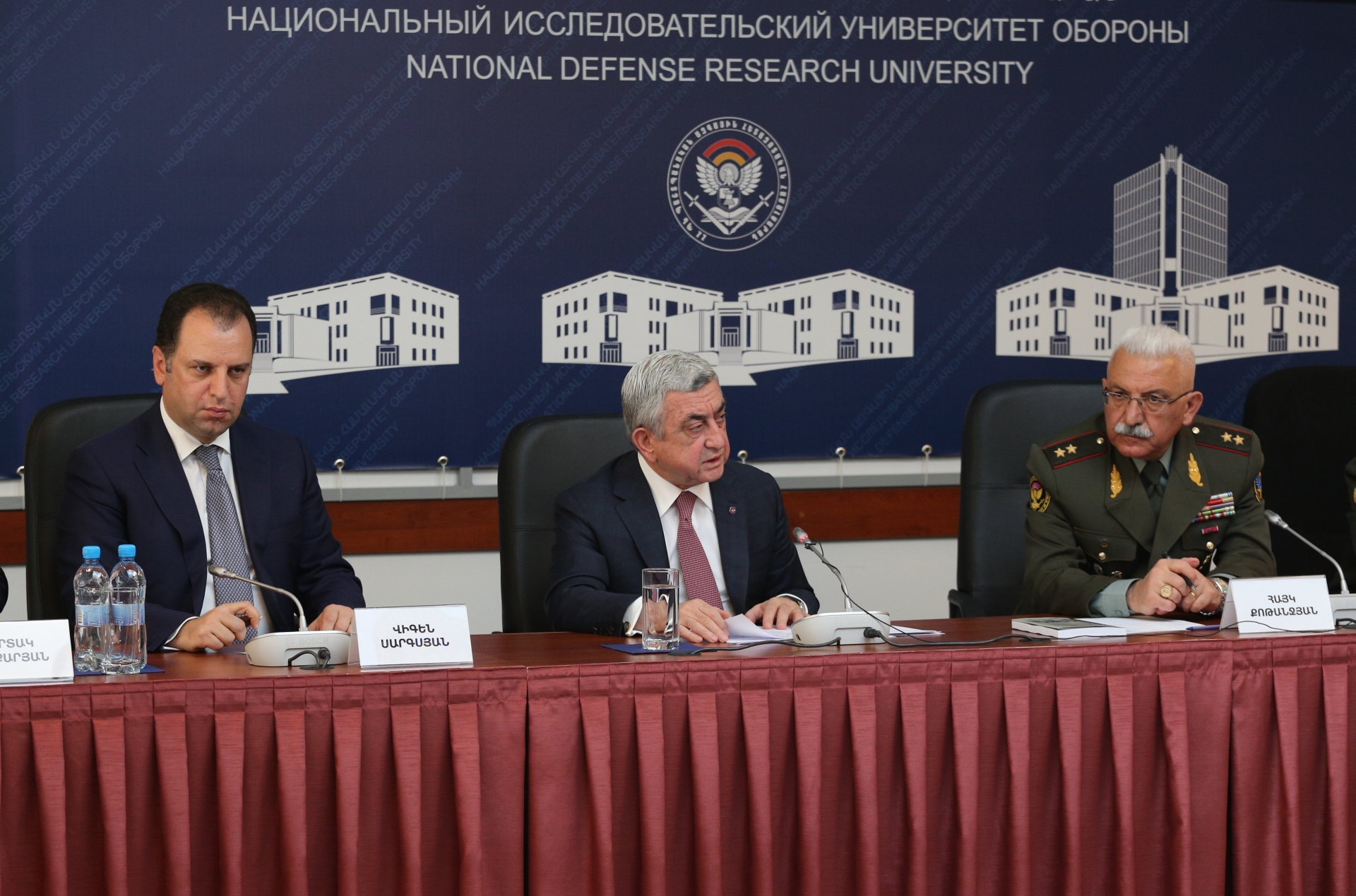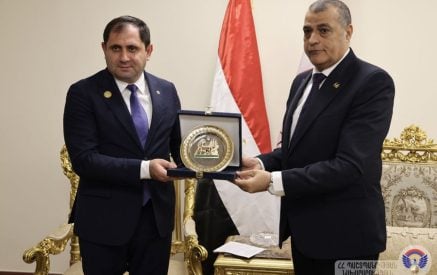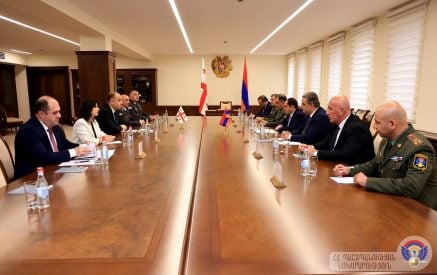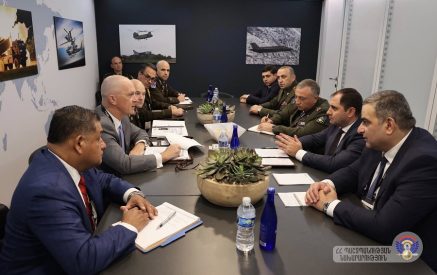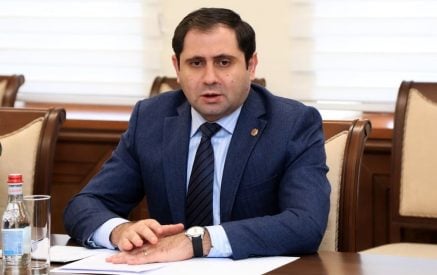Speech by Lieutenant-General Hayk Kotanjian, Head, NDRU, MOD, RA, Doctor of Political Science, Professor, at the solemn opening session signaling the launch of the educational activity of the National Defense Research University, MOD, RA. The session was attended by Serzh Sargsyan, President of the RA, Supreme Commander-in-Chief of the Armed Forces; Vigen Sargsyan, Minister of Defense of the RA; the leadership of the RA MOD and Armed Forces, and NDRU research-fellows.
Honorable Mr. President,
Dear Mr. Minister,
Generals, Officers and Special Civil Servants, Guests,
Under the leadership of the President of the state, 28 January, 2016 saw the solemn opening ceremony of the National Defense Research University of the Ministry of Defense in this very hall. The ceremony was attended by representatives of the leadership of the Ministry of Defense and the Armed Forces of the RA, our US and Russian consultants, and ambassadors. At the time only the academic-research component of the University, the Institute for National Strategic Studies, did function. Today we are here to mark the solemn launch of the educational component of the University.
This very occasion, significant for the security studies of the state, became possible owing to the former Defense Minister and incumbent President Mr. Sargsyan, under whose auspices the design of this state “smart power” tool of Armenia was elaborated in 2003-2004, and now is being stage by stage implemented.
The time period from the launch of the University may be characterized as prolific.
Our relations with the key centers of excellence, and first and foremost, with the US National Defense University, Harvard University and Moscow State Institute of International Relations of the Ministry of Foreign Affairs of the Russian Federation have become closer and extended in terms of spheres. This cooperation has been manifested in their methodological support, as well as our young research fellows’ multi-term academic fellowships.
The result is the development and review of two cornerstone documents of Armenia’s cybersecurity management system. The first one is the Draft National Cybersecurity Strategy, which was officially presented to the RA military-political leadership.
And the next is the Project for the National System of Armenia’s Cyber Resources Management. It draws forward the concept of organizing a Chief Information Officers’ Council as an interagency advisory body. It anticipates engaging agency profile deputy heads and private sector more renowned representatives of the sphere. In terms of the strong probability of the resumption of war against Armenia and Artsakh, the prime issue is to acknowledge the Ministry of Defense of the Republic of Armenia as the headquarters in the information-communication technologies and cyber resources interagency management system, by vesting the representative of the Defense Ministry with the chairmanship of the Chief Information Officers’ Council.
The logical step in our University’s further development in said direction will be the establishment of the Institute for National Cyber Resources Management Strategy via the transformation of the functioning center. It will become the only possible state platform for maintaining balanced relationship with Armenia’s strategic ally RF, and strategic partner US, as well as for the development of fruitful interactions with the US state and private centers of excellence.
The development of the “Nation-State” concept is distinguished in the academic-research sphere. Among the substantial products are the strategic assessments of the regional security dynamics and the recommendations made upon them to the Armenian military-political leadership. In 22 policy papers introduced, studies from the perspective of Armenia’s security interests have been carried out on the roles that the US, Russia, Turkey, Iran, Israel, CSTO, Eurasian Economic Union, NATO, and EU, as well as Georgia and Azerbaijan play in the South Caucasus and neighboring regions, together with the Kurdish factor and the Syrian crisis. The suggestion to apply outer space sensing technologies as a political-diplomatic deterrence toolkit is of special notice. Also, there are collective monographs published on the analysis of the Kurdish factor and Iran’s regional policy.
The educational functions of the NDRU are performed by the National Institute for Strategic Defense Security Education, the activity of which is organized via the Western model, i.e., to produce knowledge and transfer it into the auditorium. The Institute has developed the program of an interagency training pilot course on the “RA Defense System Reforms Strategic Guidelines”. It is made up on the expert-analytical material published in more than twenty issues of “Haikakan Banak” defense-academic journal and embraces the whole of the volume of defense reforms conducted with consideration of results of the defense strategic review. A part of it is concluded in the two-volume academic-expert and teaching textbook titled “Guidelines for the Defense-Security System Reforms in the Republic of Armenia”.
It is envisaged in 2018 to run an executive education program in interagency format taking into account the results of this course, as well as to create necessary bases in order to conduct one-year Master’s programs in interagency format.




















































